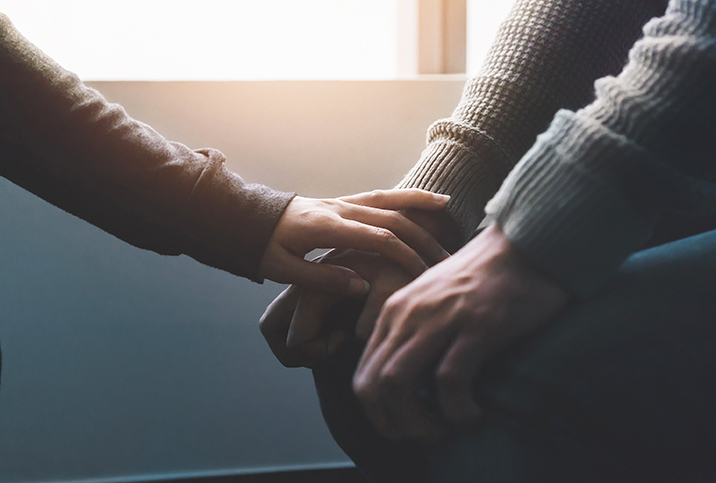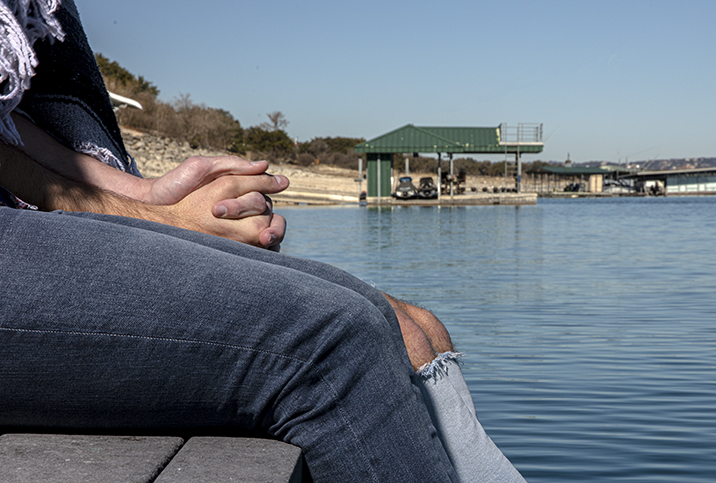How to Care for Someone with PTSD

It's not only servicemen and women who suffer from post-traumatic stress disorder (PTSD). It affects 3.5 percent of U.S. adults annually, and almost 10 percent of people experience it in their lifetime.
PTSD is a psychiatric condition that occurs in response to direct or indirect exposure to an extremely stressful or traumatic event, such as a military conflict, a natural disaster, a serious accident, sexual violence or physical assault. Sufferers may experience a wide range of symptoms, including nightmares, flashbacks, fear, shame, anger and disturbing thoughts related to the event.
A nervous system stuck on high alert can leave an individual constantly anxious, mistrusting, depressed or irritable. In addition, this condition can create a tendency toward inappropriate outbursts or reckless behavior, as well as avoidant behaviors.
Impacts on health & well-being
PTSD can be crippling. Many individuals who struggle with it feel detached from others and try to avoid potentially triggering situations, places or objects. This is one of the reasons veterans who faced armed conflict often have difficulty reintegrating into civilian life. A stimulus like a loud noise or just being touched can set off a reaction.
And it's not just day-to-day life that becomes more difficult. Relationships with loved ones and colleagues become fraught and tense if PTSD creates a barrier around communication, or if it causes a person to act inappropriately or avoid others.
PTSD is linked to both mental health disorders and physical health issues, such as chronic musculoskeletal pain, hypertension, obesity and cardiovascular disease. Suffering from PTSD increases the likelihood of job loss and incarceration, and an alarming 59 percent of sufferers develop substance abuse problems.
Post-traumatic stress disorder can take a heavy toll on the people around the affected person. Violent or angry outbursts may be scary or even unsafe, creating extreme stress in supporters' lives. If you are with someone who is suffering from PTSD, you may feel overwhelmed, hurt or like you're walking on eggshells. You may even feel like you're living with a stranger. In cases where your loved one with PTSD can no longer complete responsibilities, taking on their tasks can add extra pressure.
How to be supportive
The cornerstone of any relationship with a person with PTSD is patience. It can be a long-term struggle, and the person suffering from it may not be ready to open up to you (or a professional) about what's going on. Realize that they may not always be in control of their own behavior, and try to stay informed about their patterns and history, so any strange, sudden behavior doesn't shock you. Know their triggers—including sights, sounds and more—so you know what to avoid, and have a plan to safely manage their flashbacks or panic attacks. It's especially important that you know what to do if the person becomes violent.
If direct, one-on-one counseling is out of the question or simply seems unlikely, suggest joining a PTSD support group. Social interaction is one of the most important parts of recovery, and group therapy can help facilitate interaction. Encourage your loved one to get back into their old hobbies or try new ones. Spend time doing ordinary activities, and let them decide what feels safe and appealing and what doesn't.
Let them know you're there to listen if they want to talk, but that not talking is OK, too. Express commitment, let them know you're not going anywhere and make plans for the future. Create routines for the day and maintain a low-stress environment at home. Find ways to empower them and show them how strong they are.
What not to do
Do not force anyone to talk to you about what's going on. That in itself can be extremely traumatic for some people. But if they do want to talk, be careful of your response: Never invalidate, minimize or question an individual's experience or suffering. Don't blame PTSD for any relationship or family problems that you or your loved one may be facing. Don't take their behavior personally, because if they're moody, angry or indifferent, it's not about you.
It's a fine line to walk. Guiding and supporting someone to seek assistance is essential, but anything perceived as confrontational is unlikely to be helpful and could even place you or your loved one in danger.
Take care of yourself, too
Set boundaries where you need to and do not feel guilty for doing so. You can't be helpful to someone else if you're not in a good place yourself. The more relaxed and calm you are, the more they will be, too. Enlist others to help, too, because no matter how close you are to the person suffering, you can't be everything to them.
If supporting someone who has PTSD is taking a negative toll on you, look into support groups for loved ones of PTSD sufferers. You may learn a lot and find a great outlet for the emotions you're feeling.
While some people experiencing PTSD never fully recover, they can still live a full and productive life, especially with the support of informed and loving family and friends.
















